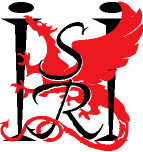
Institute for Software Research
School of Computer Science, Carnegie Mellon University
Computational and Empirical
Explorations of Work Group Performance
Michael J. Ashworth
February 2007
Ph.D. Thesis
methods combined with traditional empirical techniques offer a powerful new approach to the study of human performance. Scholars engaged in the study of work group and organizational behavior are increasingly calling for the use of integrated methods in conducting research, including the wider adoption of computational models for generating and testing new theory.
In this collection of three studies, I first review the state of modern computational modeling and find a steady increase in the incorporation of dynamic, adaptive, and realistic behaviors of agents in social network settings. However, my analysis suggests areas that can be addressed in the next generation of organizational simulation systems. I compare 28 models according to more than 200 evaluation criteria, ranging from simple representations of agent demographic and performance characteristics, to more richly defined instantiations of behavioral attributes, interaction with non-agent entities, model flexibility, communication channels, simulation types, knowledge, transactive memory, task complexity, and resource networks. I assess trends across these criteria, discuss practical applications, and propose an agenda for future research and development.
In the second study, using a modified version of one of the models reviewed in the first study, I examine the link between individual performance and group outcomes. Organizational behavior theories generally agree that human capital is critical to teams and organizations, but little guidance exists on the extent to which such theories accurately explain the relative contributions of individual actors to overall performance. Using newly created network-based measures of individual knowledge and task exclusivity along with simulations based on empirical data obtained from a software development firm, I investigate the relative effectiveness of social network theory and resource dependency theory as predictors of individuals' contributions to group performance. Results indicate that individual impacts on group performance are even more closely associated with knowledge and task dimensions than with social network structure. Furthermore, given that knowledge may be assessed a priori, I explore factors that may provide useful guidance for structuring teams and predicting team performance.
In the third study, I integrate psychological, social network, and organizational learning theories to investigate the extent to which the amount and structure of a work group's transactive memory explains the relationship between the group's collective experience and its performance. I use network surveys and archival data obtained from 1,456 individuals and 87 managers on 118 diverse work teams in four Fortune 500 companies as the basis for analyzing relationships between transactive memory, group experience, and group performance. I find that group transactive memory partially mediates the link between group experience and performance. In addition, the degree of "small-worldness" exhibited in the structure of group transactive memory moderates the memory's mediating effect on group learning. I discuss the study's findings, practical implications, and limitations as well as how the findings may extend to inter-group,organization, inter-organizational, and even societal levels.
Finally, I provide a path for computational extensions of these studies in future research efforts. In particular, I propose modifications of the multi-agent model used in the second study ("Construct") that will enable dynamic simulation of agent-level learning that builds to group and organizational level learning. I also suggest a step-bystep methodology for calibrating, validating, and conducting a multi-agent simulationbased study of organizational learning.
164 pages
Return to:
SCS Technical Report Collection This page maintained by reports@cs.cmu.edu
School of Computer Science homepage